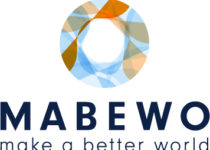Ganzheitlich: Wohlbefinden – Gesundheit – Zufriedenheit

„Der Körper Dein Tempel“ – Gesundheit von A-Z ein Projekt rund um die Welt, die ganzheitliche Gesundheit – globales Wissen über Grenzen hinweg, von Elisabeth Schulte, Studentin und Bloggerin aus Berlin
Auf acht Säulen stützen sich die Aspekte der ganzheitlichen Gesundheit: Körper, Ernährung, Emotion, Sozial, Spirituell, Intellektuell, Finanziell und des Umfeldes. Was beeinflusst das allgemeine Wohlbefinden? Wie erreiche ich eine ganzheitliche Gesundheit? Aus anderen Kulturen, Bräuchen und Ländern lernen? Technologie, Digitalisierung und Künstliche Intelligenz ermöglichen neue Standards für eine gesündere Lebenserwartung. Wie beeinflussen und gestalten wir unsere Gesundheitszukunft mit? Das möchten wir wissen, auf diese Fragen und weitere suchen wir Antworten weltweit und starten eine Interviewreihe mit Ernährungsberatern, Ärzten, Krankenkassen, Therapeuten, Gesundheitsministerin und Fragen nach. Bevor dies Interviewreihe starten kann, stellen sich die Fragen: Wie sollte ein Interview aufgebaut sein, was macht ein gutes Interview aus und wie ist der Aufbau für ein erfolgreiches Interview?
Fragen macht klug – Die Kunst des Interviewens
„Das Interview ist das in der praktischen Arbeit von Psychologinnen und Psychologen am häufigsten eingesetzte Instrument zur Datenerhebung (Westhoff & Strobel, 2011).“ Kein diagnostisches Routineverfahren ist so verbreitet. Ob klinischen Psychologie oder Arbeits -und Organisationspsychologie; ob diagnostisches Erstgespräch oder Einstellungsinterview, Experten nutzen das Verfahren, um valide Informationen zu regenerieren. Welche Strategien und Techniken können wir von den Spezialisten lernen?
Was macht ein gutes Interview aus?
Im Gegensatz zu einem Fragebogen ist der Informationsgewinn in einem Interview von dem Beziehungsaufbau zwischen Interviewer und Interviewten abhängig. Als Interviewer ist man für den Gesprächsverlauf zuständig. Eine gründliche Vorbereitung und regelmäßiges Training sind hier der Schlüssel zum Glück. Als besonders bedeutend gelten Transparenz, Professionalität, sowie Offenheit und fachliche Kompetenz.
Was ist ein guter Interviewer(in)
Fachliches Interesse und menschliche Neugier sind unabdingbar. Darüber hinaus erlaubt erst entsprechendes Fachwissen einen Erkenntnisgewinn auf hohem Niveau. Einfühlsames Eingehen auf den Gegenüber gelingt mit professioneller Freundlichkeit. Einflüsse der eigenen Person auf die Ergebnisse des Interviews sind möglich. Das eigene Verhalten muss unbedingt reflektiert werden.
Die Phasen des Interviews
- Vorbereitungsphase
Ein gelungenes Interview wird mit Hilfe von ausführlicher Recherche vorbereitet. Außerdem müssen die äußeren Rahmenbedingungen stimmen. Ein entsprechender Raum vorbereitet und ausreichend Zeit eingeplant werden. Findet das Interview online statt, ist eine stabile Internetverbindung, gute Ton und Bildqualität von besonderer Bedeutung.
- Im Interview
Die Fragen in einem Interview, das auf Erkentnissgewinn abzielt, sind optimaler Weise nicht suggestiv. Ein geschulter Interviewer geht empathisch auf seinen Gegenüber ein und achtet auf Körpersprache, Sprachniveau und gibt seine Gegenüber genügend Raum zu antworten, ohne dabei selbst Position zu beziehen. Aufzeichnungen sind sinnvoll.
- Nachbereitunggsphase
Erst nach dem Interview geht es an die Bewertung der gesammelten Daten. Diese verläuft so objektiv wie möglich.
Standardisierung
Interviews sind unterschiedlich standardisiert:
- Unstandardisierte Interviews
Bei einem Unstandardisierte Interview ist der Interviewer frei in seinen Fragen und deren Reihenfolge. Auch die interviewte Person kann frei, ohne vorgegebene Antwortmöglichkeiten reagieren. Die Akzeptanz ist entsprechend hoch. So eignet sich ein unstandardisiertes Interview als erstes Gespräch um die Fragestellung noch weiter zu konkretisieren.
Eine eingeschränkte Objektivität, der unkontrollierbare Einfluss des Interviewers auf Verlauf und inhaltliche Bewertung sowie mangelnde Vergleichbarkeit gelten als Nachteile.
- Standardisierte Interviews
Bei einem standardisierten Interview sind Fragen und Reihenfolge vorgegeben. Auch der Interviewte wählt seine Antwortmöglichkeiten wie bei einem Fragebogen aus. Die Objektivität ist hoch. Nachteile sind rigide Vorgaben und geringe Akzeptanz des Gegenübers.
- Halbstandardisierte Interviews
Bei halbstandardisierten Interviews ist der Inhalt der Fragen, aber nicht der Wortlaut und der Zeitpunkt vorgegeben.
Auch wir haben und für diese Art des Interviews entschieden. Der Ansatz erlaubt uns unserem Anspruch an Objektivität gerecht zu werden und gleichzeitig flexibel und empathisch auf die andere Person einzugehen.
„Der Einfachheit halber wird im gesamten Text die männliche Form verwendet; die […] weibliche Form ist selbstverständlich eingeschlossen“.
Rechercheinstrumente: Renner, K. H., & Jacob, N. C. (2020). Das Interview. Springer, Berlin, Heidelberg.
Westhoff, K., & Kluck, M. L. (2008). Psychologische Gutachten schreiben und beurteilen (5., vollständig überarbeitete und erweiterte Auflage).
V.i.S.d.P.:
Elisabeth Schulte
Stud. psych.
Über die Autorin:
Elisabeth Schulte studiert Psychologie in Berlin und arbeitet an klinischen Studien mit. Das Projekt Gesundheit von A-Z tritt eine virtuelle globale Reise, mit dem Ziel langfristig nachhaltige Therapien für die ganzheitliche Gesundheit zu entdecken, an. Besonderes Interesse liegt im Wandel des Gesundheitswesens durch Technologie, Digitalisierung und Künstlicher Intelligenz zur ganzheitlichen Gesundheit von A-Z.
Kontakt:
Bausch Enterprise Information
Max Bausch
Emdener Straße 37
10551 Berlin
Deutschland
Tel.: 00493040893638
Fax: 00493040893639
E-Mail: info@bausch-enterprise.de
Web: http://bausch-enterprise.de/
Firmenbeschreibung:
Informationen: Digitalisierung – Technologie – Künstliche Intelligenz. Ohne Digitalisierung, Automatisierung, KI läuft nichts mehr, weder Industrie, Handwerk noch Dienstleistung. Die Generationen X, Y und Z sind komplett digitalisiert, sie gestalten die Zukunft neu. Bausch Enterprise Information ist eine neugierige Gruppe junger Digital Natives mit der Idee, die Zukunft durch lebenslanges Lernen mitzugestalten.
Pressekontakt:
Bausch Enterprise Information
Max Bausch
Emdener Straße 37
10551 Berlin
Deutschland
Tel.: 00493040893638
Fax: 00493040893639
E-Mail: info@bausch-enterprise.de
Web: http://bausch-enterprise.de/
Englische Übersetzung:
Holistic: Well-being – health – satisfaction
„The Body Your Temple“ – Health from A-Z a project around the world, holistic health – global knowledge across borders, by Elisabeth Schulte, student and blogger from Berlin
The aspects of holistic health are based on eight pillars: body, nutrition, emotion, social, spiritual, intellectual, financial and environmental. What influences the general well-being? How do I achieve holistic health? Learning from other cultures, customs and countries? Technology, digitalization and artificial intelligence enable new standards for a healthier life expectancy. How do we influence and shape our health future? That’s what we want to know. We’re looking for answers to these and other questions worldwide and are starting a series of interviews with nutritionists, doctors, health insurance companies, therapists, health ministers, and follow-up questions. Before this series of interviews can start, the questions arise: How should an interview be structured, what makes a good interview and what is the structure for a successful interview?
Questions make you smart – the art of interviewing
„The interview is the most frequently used instrument for data collection in the practical work of psychologists (Westhoff & Strobel, 2011)“. It is considered a routine diagnostic procedure. Whether clinical psychology or industrial and organizational psychology; whether diagnostic initial interview or employment interview, experts use the procedure to regenerate valid information. What strategies and techniques can we learn from the specialists?
What makes a good interview?
The basis of a successful interview is conversation and relationship building. As an interviewer you lead the flow of speech. Thorough preparation and training are the key to happiness here. Transparency, metacommunication, as well as friendliness and neutrality are considered particularly important.
What is a good interviewer
Interest in people and in the research question is indispensable. In addition, only the appropriate expert knowledge allows for a knowledge gain on a high professional level. A high degree of adaptability and empathy allows for a sensitive response to the person opposite. A self-critical attitude and the ability to reflect (to assess the potential influence of one’s own person on the interview) is very important.
The phases of the interview
- Preparation
A successful interview is prepared with the help of adequate expertise and use of background information. The interviewer estimates enough time for the interview and ensures that the interview can take place undisturbed, in premises that allow a pleasant and constructive working atmosphere. If the interview takes place online, a stable Internet connection, good sound and picture quality are of particular importance.
- Procedure
A trained interviewer asks only necessary questions, adapts to the language level of the counterpart, avoids suggestive questions, pays full attention to the interviewee, pays attention to pleasant eye contact, keeps an eye on the body language of the interviewee, allows time for reflection and answers between questions, lets the interviewee speak, keeps a neutral attitude towards what is said, and takes notes.
- Follow-up
In addition, the trained interviewer evaluates immediately after the interview and is aware of his/her prejudices/expectations and tries to avoid their influence on evaluation.
Standardization
Interviews differ in the degree of standardization.
Unstandardized interviews
In a non-standardized interview there are no fixed questions and answer scales. The maximum freedom is with the interviewer. Thus, questions are worked out in the initial interview. A direct personal exchange and high acceptance by the interviewee are advantages of the Unstandardized Interview. A limited objectivity in the execution and evaluation, errors of judgement, self-dynamics of the course of the interview, poor comparability as well as a strong influence of the interviewer on contents and evaluation are considered as disadvantages.
Standardized Interviews
In a standardized interview, there is a specification of content (possibly also wording) and timing of the questions. If necessary, the alternative answers are also specified in detail (similar to a questionnaire). In this way the experts achieve a high comparability of the results, which are largely independent of the interviewer. Disadvantages are no or little flexibility, the interviewer may not feel taken seriously and a high expenditure of time in the preparation of the interview.
Semi-standardized interviews
In semi-standardized interviews, the topics to be addressed are defined. The exact formulation of the questions is left to the interviewer. This is an attempt to avoid the disadvantages of structured and unstructured interviews and combine their advantages. Semi-standardized interviews are also considered guideline-based.
We have also decided and will continue to decide for this type of interview.
Because this way there is a relief for the interviewer during the interview. The overview is easier to maintain, since the questions are already roughly pre-formulated. There is more capacity available for behavioral observation and the evaluation of the interview is also easier.
The interview guide
Since we have decided on a form of the interview, we will now start to create the guideline. A guideline is the plan for conducting a partially standardized interview.
Rough structure
First the topic blocks are defined according to the questions, then the
Topic blocks are put in content order (structuring) and finally embed the information gathering phase (with topic blocks) in the introductory and concluding sections.
Detailed structure
Here, appropriate questions, more or less formulated, are asked and the type of question formulation (open vs. closed, direct vs. indirect) is decided. Furthermore, a filter structure is prepared („if no: continue with…“).
Important considerations are: Start the section with an open question, use short and understandable sentences, ask for concrete behaviour, use the context as a mnemonic, do not use suggestive questions and avoid questions that evaluate the behaviour in question.
„For the sake of simplicity, the masculine form is used throughout the text; the […] feminine form is naturally included.
Research tools: Renner, K. H., & Jacob, N. C. (2020). The interview. Springer, Berlin, Heidelberg.
Westhoff, K., & Kluck, M. L. (2008). Writing and evaluating psychological reports (5th, completely revised and expanded edition).
V.i.S.d.P.:
Elisabeth Schulte
Stud. psych.
About the author:
Elisabeth Schulte studies psychology in Berlin and collaborates on studies for therapeutic behavioral strategies to develop new forms of therapy. The project Health from A-Z takes a virtual global journey with the goal of discovering long-term sustainable therapies for holistic health. Particular interest is in the transformation of the health care system through technology, digitalization and artificial intelligence to holistic health from A-Z.
Contact us:
Bausch Enterprise Information
Max Bausch
Emdener Strasse 37
10551 Berlin
Germany
phone: 00493040893638
fax: 00493040893639
e-mail: info@bausch-enterprise.de
Web: http://bausch-enterprise.de/
Company description:
information: Digitalization – Technology – Artificial Intelligence. Without digitalization, automation, AI nothing works anymore, neither industry, trade nor service. The generations X, Y and Z are completely digitalized, they are reshaping the future. Bausch Enterprise Information is a curious group of young digital natives with the idea of helping to shape the future through lifelong learning.
PRESSEKONTAKT
Bausch Enterprise Information
Max Bausch
Emdener Straße 37
10551 Berlin
Website: bausch-enterprise.de
E-Mail : info@bausch-enterprise.de
Telefon: 00493040893638
Telefax: 00493040893639


